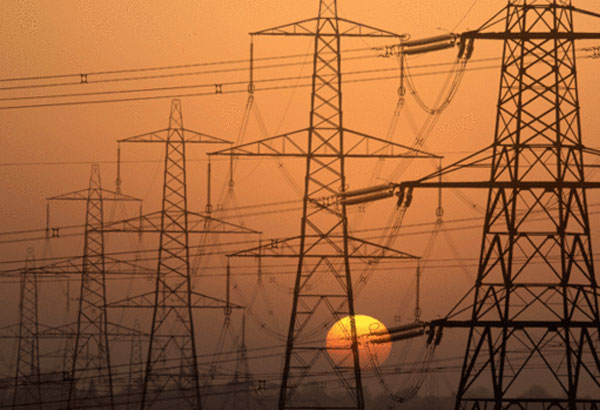Gov’t urged to address high power rates

The Philippines has one of the highest industrial power rates in the region at $9.91 per kilowatt-hour, compared to Indonesia’s $4.82 per kwh and Thailand’s $5.33. File
MANILA, Philippines — The Philippines will continue to lag behind Asian neighbors in socio-economic development unless government takes proactive reforms to address the country’s high power cost – considered the most expensive in the world, according to Meralco PowerGen Corp. (MGen) senior vice president for commercial and planning Chrysogonus Herrera.
“We are at the bottom in terms of gross domestic product growth in Asia and it is clear that we need to catch up with other countries such as Malaysia and China, which have achieved higher GDP even though they are producing higher carbon dioxide (CO2) emission,” Herrera said.
The Philippines has one of the highest industrial power rates in the region at $9.91 per kilowatt-hour, compared to Indonesia’s $4.82 per kwh and Thailand’s $5.33.
Herrera said the Electric Power Industry Reform Act (EPIRA) should transform the power industry from a sellers’ market and a government monopoly in generation to a buyers’ market to help reduce power costs.
“Distribution utilities (DUs) and contestable customers must be empowered with competition and choice, including the decision regarding from whom and what to buy,” he said.
The power sector must also let the market under the EPIRA sort itself out in pursuing least cost generation alternatives, according to Herrera.
“We have seen it working with about P15 billion in investments to generate about 7,500 megawatts of new capacity addition until 2021,” he said.
The country should also replace ageing plants by building new plants. About 60 percent of the country’s operating power plants are older than 15 years, or more than half its life span of 25 to 30 years. As power plants get older, they are no longer capable of handling lifting operations, Herrera said.
“The future presents an opportunity to replace them if they are no longer competitive in the WESM, are not environmentally compliant, or they can no longer comply with the resiliency standards imposed by the Department of Energy,” he said.
- Latest
- Trending





























